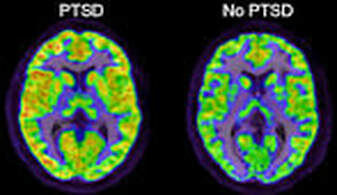 I often get asked: "How can hypnotherapy help me?" My usual response is to briefly share with people how it has helped me. From my very first experience in a hypnotherapy session, I began to address deep and painful issues that were literally 'getting in the way' of my life. That I had no 'conscious' knowledge of. Especially around the issues of connection to others, longterm relationships, even friendships. I began to learn, just like in working with clients, how past trauma - even at conception and in the womb - was still impacting me without me being conscious or aware of it. And I learned, step by step, how to heal from those traumatic events. My teachers wrote an article that might help you understand exactly some of the ways hypnotherapy can help heal and resolve PTSD and past traumatic events. Here is the article: "The many troubling symptoms of Post-traumatic Stress Disorder are broken down into these DSM-V diagnostic categories: Exposure, Intrusion, Avoidance, Alteration, and Arousal. Hypnotherapy is highly effective in the treatment of PTSD because it goes right to the root of these symptoms. Below is an overview of each of those five areas, and how hypnotherapy helps treat them. 1. EXPOSURE Clients experience a traumatic event (an accident, assault, disaster, or act of terror) or a prolonged series of traumatic events (such as ongoing psychological, physical, and/or sexual abuse as a child or adult), and the trauma changes their perceptual experience of the world around them. The limbic system is designed to respond to a threat or attack in one of the following ways: fight, flight, or freeze. Trauma imprints upon the brain and body in such a way that clients continue to live as though the trauma is happening in the present. How does Hypnotherapy help? Hypnotherapy cannot erase traumatic events, but it can directly address the event(s) and their effects. Hypnotherapy allows clients to access information and ‘data’ that is stored in their physical bodies, their subconscious mind, and their energetic fields. The actual traumatic event can be examined; the wide array of emotion surrounding it can be claimed, processed, and expressed; any negative conclusions or beliefs (that have often directly contributed to life-long behavioral patterns) can be released and transformed. 2. INTRUSION As mentioned above, trauma impacts the brain and body in myriad ways. Nightmares, flashbacks, distressing memories, and reactivity to cues or reminders of the event(s) are the most common ways in which trauma interrupts daily life. The majority of clients experiencing intrusive symptoms often feel a total lack of control over their minds and bodies, as though the trauma has hijacked their own sense of agency and free will. How does Hypnotherapy help? In a hypnotherapy session, the client is given multiple tools, resources, and opportunities to take back a sense of control. One method, called ego strengthening, employs a variety of techniques to help clients make direct contact to the parts of themselves that are strong, wise, and brave. By doing this, and providing a physical anchor to ‘lock in’ the resource via mind-body connection, clients gradually remember and reclaim their own agency. They are reminded of their own strengths and virtues, which is incredibly healing. Another useful component of hypnotherapy is teaching the client ways in which they can modulate their own physiological reactivity. This is often done while the client is in trance, but a hypnotherapist can also teach the client how to titrate their shock symptoms in a regular session. 3. AVOIDANCE As can be expected, a victim of trauma will do what it takes to avoid a recurrence of the feelings associated with their trauma. Many avoidance symptoms can result from conscious choice (avoiding people or places, for instance), but clients also ‘avoid’ via dissociation, substance abuse, or addictive behaviors. The latter are far less conscious, but no less purposeful. The purpose of avoidance is to attempt to distance oneself from the trauma…but when trauma is rooted in the brain and body, what results is a fragmented sense of self. Avoidance precludes connection; thus, be it months or years later, clients come to us reporting that they feel detached, numb, and/or stuck. How does Hypnotherapy help? One of the primary goals of hypnotherapy is restoration of the self: for the physical, emotional, mental and spiritual parts of the client to be unified, balanced, and whole. From this place, healthy connection can be born. Hypnotherapy gives a voice to the lost parts of the self, the parts that were hidden away or shrouded in negativity as a means to survive. Several types of regression can be successfully used to help the client process all manner of traumatic memory. The hypnotherapist is able to use creativity and imagination to help the client work through the past event, but this time, with resources they did not have at the time of the original event(s). When this work is done in trance, it changes the way the memory is stored, and the way it functions in the body and mind. Clients are no longer held hostage by the past. 4. ALTERATION Trauma changes us…it alters personality, mood, memory, motivation, cognitive function, and perception. By extension, it changes relationships, families, and systems. During a traumatic event, not only are sensory perceptions altered, and any previous sense of safety forever changed…but a victim of trauma displays notable shifts in the conclusions they draw. They form new, negative conclusions about themselves (‘I deserved it; I’m bad; I shouldn’t have been there; My body is not my own; It was my fault.’). They also form negative conclusions about other people, and the world in general (‘The world is a scary place; People are evil; Men are dangerous; Trust is foolish.’). How does Hypnotherapy help? Hypnotherapy opens a portal to the subconscious. With a skilled hypnotherapist, clients can access the pivotal events surrounding their trauma during careful and modulated regression. In trance, they clearly experience the moment(s) in which their conclusions turned negative. Clients then begin to change those distorted beliefs, and reclaim what was lost. A negative conclusion such as ‘I am bad’ is then replaced with ‘I am good’ or ‘I am lovable,’ for instance. Soul retrieval is another valuable component in the treatment of PTSD. Too often, parts of ourselves are lost or forsaken when a traumatic event occurs, often as a way of protecting that part of ourselves. To retrieve and reclaim lost parts of the soul is of immeasurable benefit to trauma survivors. 5. AROUSAL Lastly, a history of trauma, particularly when it goes untreated, results in marked behavioral and functional changes. Trauma that is stuck in the body will inevitably try to work its way out; this can manifest in chronic shock, somatic or physical illness, or arousal symptoms such as hyper-vigilance, exaggerated startle, or problems sleeping or concentrating. Reckless or high-risk behavior could be another way that arousal manifests in behavior. How does Hypnotherapy help? A major component of healing trauma is giving clients the ability to complete the action that they were not able to do when their trauma originally occurred. Trauma is rooted in the body, in the paralysis and the inability to take action that results from the ‘freeze’ response. It is useful to look at arousal symptoms as ways in which the body is trying to heal, trying to get our attention. Alternatively, arousal symptoms are a reflection of the ‘stuck’ trauma response (fight, flight, freeze). The healing of trauma cannot be complete without allowing the body to move. Part of our role as therapists is to help the client to unfreeze: to usher their emotions and thoughts into conscious awareness, process them, and release them. In hypnotherapy, we encourage clients to move their bodies, to strike out. What movement, what reflex was their body unable to do in that moment of helplessness? In trance, the client is provided with a corrective experience; they can hit the perpetrator, scream out loud, say NO, run away, defend themselves, push away a weapon, break out of a trap, tell a trusted person what happened. This additional corrective experience can be monumental in helping a traumatized client release the past and move forward in their life." And here is the link to the article and The Wellness Institute website: web.wellness-institute.org/blog/the-five-symptoms-of-ptsd-and-how-hypnotherapy-helps
1 Comment
9/3/2019 07:50:50 am
I found it interesting when you said that traumatic events of our past can be eliminated by using hypnotherapy. My nephew is struggling with some past trauma. He will be interested to know how hypnosis therapy can help him.
Reply
Leave a Reply. |
Zoe ~
I am a catalyst for others, helping people continue, over their entire life span - preconception, conception, in the womb and after - to grow, learn, heal so that each person can live their deepest longings. This is my passion and purpose. Adventurer, lover of beauty, seeking clarity, harmony & balance. Compassionate. Just. Fair. Grateful. Hugely grateful. ONE more time: HUGELY GRATEFUL. |



















